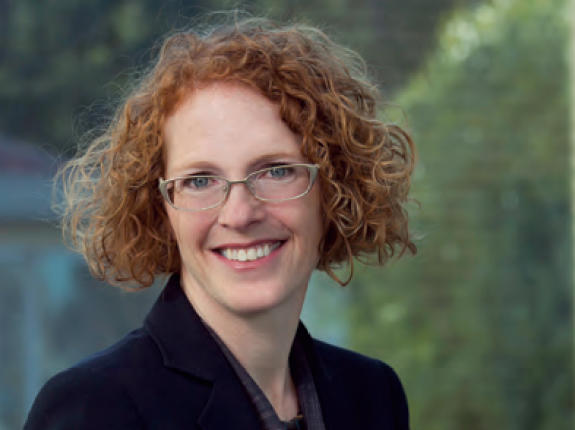Gillian Lester, a legal scholar who is currently the acting dean of UC Berkeley’s law school, has been named the next dean of Columbia Law School, effective January 1, 2015.
Lester succeeds David Schizer, who stepped down in July after ten years, which is the law school’s term limit for the position. Lester’s appointment followed a nationwide search; until she takes over, law professor Robert Scott will be serving as interim dean.
“I’m honored and excited to take on this leadership role,” Lester says. “Columbia Law School has a tremendously distinguished history and yet never rests on its laurels. I can’t wait to start working with the school’s distinguished faculty, talented students, and accomplished alumni.”
A native Canadian who holds degrees from Stanford Law School and the University of Toronto Faculty of Law, Lester is an authority on employment law whose research has focused on distributive justice and the welfare state, workplace intellectual property, paid family leave, and the design of social-insurance programs. She has published several books and is a coauthor of the popular casebook Employment Law: Cases and Materials.
Lester takes over Columbia Law School as it comes to the end of a prosperous decade under Schizer, a tax-law expert who was only thirty-five years old when he became dean in 2004. The school has increased the size of its faculty nearly 25 percent since then, thanks largely to the success of a $350 million fund raising campaign, enabling the school to sharply reduce its student-to-teacher ratio and to pursue a broad range of curricular innovations. In recent years, the school has created new centers and programs in international arbitration, climate-change law, constitutional governance, national-security law, public research and leadership, global legal transformation, sexuality and gender law, and business law and policy, among others. It has also increased financial aid and internship opportunities, especially for students interested in government and public-interest jobs.
“The school has had fabulous leadership under David Schizer,” Lester says. “My job is to bring it to even higher levels of excellence.”
Lester says she believes the school is positioned to chart a new path for the field of legal education. The legal academy in the US has come under fire in recent years from law firms and other businesses that say law schools ought to be spending less time teaching legal theory and more time providing their students practical skills such as negotiating, arbitrating, litigating, and writing briefs. The call for change has been amplified by an increasingly competitive job market for attorneys, which, economists say, is partly the result of the Internet having made some aspects of legal work less labor-intensive.
Lester points out that Columbia Law School, which is perennially ranked among the top five law schools in the nation, already has a reputation for balancing academic course work with hands-on training; the school has consistently been ranked as one of the best law schools, and often the very best, for job placement nationally.
“A lot of other law schools are struggling to place students in good jobs,” Lester says. “Columbia Law School is clearly not struggling in this regard, which means that we have a responsibility to provide leadership. We need to continue demonstrating bold and innovative ways to meet the needs of our profession and the changing economy.”
One aspect of the Columbia Law School curriculum that is working particularly well, and which may be worth experimenting with further, Lester says, is its interdisciplinary character. She says the law school’s numerous partnerships with Columbia Business School — which include a JD/MBA program and a broad range of research and teaching collaborations supported by the recently established Richard Paul Richman Center for Business, Law, and Public Policy — exemplify how the school can adapt and improve its curriculum by drawing upon the intellectual resources of the larger University.
“Imagine you’re a business lawyer entering the job market,” she says. “Wouldn’t you want top-notch training in corporate finance, accounting, and negotiation? Columbia Law School provides that kind of interdisciplinary training for careers in the public and nonprofit sectors as well, not just in business law. But perhaps we should do even more.”
Lester says that Columbia is also ideally suited for training international lawyers, given its location in New York City and its research and study-abroad collaborations with institutions in China, Japan, South Korea, Brazil, Israel, Britain, the Netherlands, France, Germany, and several other countries.
“Our students have lots of opportunities to think across legal jurisdictions and across legal cultures,” she says. “International law is going to be a major area of growth for our profession in the next few decades, and I’m determined to see Columbia produce the most cosmopolitan, versatile lawyers.”
Says President Lee C. Bollinger: “Professor Lester brings accomplished scholarship, admired teaching and first-hand academic leadership experience at a great peer institution to her new role at Columbia. I believe this is a great appointment for the law school, and promises over the coming decade to help the school flourish at a time of both challenge and opportunity in the field of legal education.”



